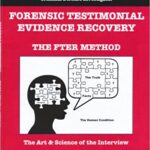There is a long-standing ideological legacy running through the history of western civilization that has unfolded in the form of an age-old ongoing dialog-debate. it involves a controversy with implications that are complex, and are simultaneously metaphysical, epistemic, and ethical, but it can be summarized in simple terms: Is the nature of reality, knowledge, and value ‘absolute’ in a final, monolithic sense?, or is it ‘relative’ in a provisional, pluralistic sense? Is there, in the ‘absolutist’ sense, a single actual ‘real world’, an unequivocally ‘true’ way to understand this world, and an ultimately ‘right’ way to assess how we should evaluate ourselves, others, and this world? OR on the other hand, in the ‘relativist’ sense, is what we sometimes call ‘the world’ really a simultaneous multiplicity of possible worlds, with as many ‘true’ perspectives on them as there are varied perceptions, and that can be valued in as many ways too?
We encounter this dichotomy in daily life and public affairs all the time, of course. When listening to several reliable eye-witnesses in a criminal case, for instance, every person –having seen the criminal event from a different vantage-point, through their own psychologically biased lens– seems to have observed a different scenario despite watching the same event: and it certainly seems as though each person’s unique perspective is valid even when they contradict one another—reality, truth and value seem inherently ‘relative’ in this way. On the other hand, the court’s verdict assumes that there must have been a single true version of what ultimately occurred, as the defendant must have either committed the criminal scenario in question (“beyond a reasonable doubt”) or didn’t—reality, truth and value seem fundamentally ‘absolute’. Deciding which of these views may be more accurate, lies at the heart of this running controversy.
The absolutism/relativism debate appears at the inception of the Western intellectual tradition in Plato’s dialogs and among his philosophical contemporaries. On the relativist side, ancient Greek Skeptics critiqued the foundations of all knowledge, arguing that all factual claims ultimately rest on either baseless beliefs, circular reasoning, or infinite regress. Plato’s Sophist contemporaries contended that, in light of this uncertainty, no absolute claims can be made about the world and that all knowledge claims are ultimately just matters of opinion (there is no absolute, certain and single “truth of the matter”, about criminal cases of anything else). Plato, the absolutist, countered that the certainty of things like mathematical and logical reasoning proved the Skeptics and Sophists wrong, and that this certainty provides a basis for arriving at absolute, eternal and universal truths about reality (eg; there really is a final “truth beyond a reasonable doubt” in criminal cases)—culminating in a single monolithic absolute ‘Gods-eye-view’ of existence that he called ‘The Good’.
This ancient dilemma has remained unresolved through the millennia—reemerging again and again in various intellectual-cultural contexts. The debate between Medieval ‘realists’ (who, believed in a final, absolute Gods-eye-view of reality ‘as it really is’) Vs. ‘nominalists’ (who believed that no such view of reality is possible and that mere mortals can only ever know their own relative truths) reflected this dichotomy. The conflicting philosophical schools of Enlightenment ‘rationalists’ like Rene Descartes (who contended that objective reality was absolute, despite our relative vantage-points on it) Vs. ‘skeptics’ like David Hume (who claimed that humanity’s epistemic limitations leave us only relative understandings of whatever reality might be in-itself) was essentially a recapitulation of it. And the conflict between late modern/postmodern ‘perspectivists’ from Friedreich Nietzsche through Michel Foucault (for whom the very idea of absolute truth is meaningless) Vs. ‘logical empiricists’ like Bertrand Russell and ‘naturalists’ like Sam Rosenberg (who remain convinced that the physical laws, logic and mathematics of science yield a kind of objectivity that comes at least close to absolute truth) continues the ancient debate with no clear prospect for resolution.
Interestingly, we find a corresponding debate throughout the history of south Asian civilization as well, exemplified by the contrasting views of the Jain and Hindu Nyaya philosophies in ancient India. There is a famous story associated with Jainism about several blind men, who have never encountered or been told about elephants, encountering one for the first time and attempting to describe what an elephant is: Each man touches a different part of the elephant and defines what an elephant is accordingly –the man who touches a tusk claims that an elephant is a hard, sharp, pointy animal. The man who touches its flank claims that an elephant is a broad flat animal, and the man who touches its trunk claims that it is a narrow winding animal. None of these reports is false, but none is absolutely true either. Being based on the partial and incomplete perspectives of each claimant (like the eye-witness perspective on a crime), they are relatively true. According to Jainism, this exemplifies the both the nature of reality and the limits of knowledge. Knowledge of our radically pluralistic reality (from the vantage-point of our limited, ego-bound purview) remains inescapably relative to our biological, individual, and cultural biases—and there is no such thing as an unbiased absolute perspective on reality. The term “anekantavada” in Jain metaphysics denotes the thoroughly pluralistic multiverse that characterizes reality. There is no single, stable, enduring state of existence that we can point to as the real world. Reality is radically relative. Similarly, the term “Syādvāda” is the theory of knowledge (or epistemology) that follows from anekantavada and asserts that no objectively definitive descriptions (like basic elements, ultimate laws, or fundamental categories of predication) can be ascribed to the world. Knowledge and truth are radically relative as well.
On the other end of the philosophical spectrum, the ancient Nyaya system, a traditional school of Hindu philosophy, argued forcefully that for existence, knowledge, and value to mean anything at all, they must be, in the final analysis, absolute. Obviously, Nyaya philosophers acknowledged, every person and culture has its own version of Truth, but this doesn’t make all of them equally true (or false). With careful attention to epistemic justifications for knowledge-claims through perception, inference, comparison, and testimony, Nyaya thinkers reasoned that absolute Truth is a necessary– indeed the necessary– quality of reality. This is evident by virtue of both the irrefutable logic of any knowledge claim: Indeed, for us to claim that any belief or claim is “only relative” (like eye-witness testimony about a crime) we have to assume the existence of an absolutely Truth vantage-point that relative perspectives are relative too (like the actual criminal incident in question, to which other beliefs are only relative in comparison), and the practical consequences of our beliefs (some beliefs –presumably the true ones– simply work better than others in practice in ‘the real’ world).
This absolutist/relativist dichotomy has persisted through history, across cultures and in our daily lives: It marks the difference between what we call “objective fact” (like the actual crime referenced above, considered true in an absolute sense) and “subjective opinion” (like the various witness statements above, relative to the perspective of the person holding it). It underwrites the distinction we make in painting and literature between the “realist” style (picturing or describing reality in its ‘absolutely true’ mirror image form) and other styles like “romanticism” or “impressionism” (picturing reality from the relative perspective of the artist or writer describing it). It also shaped the dispute about the nature of reality depicted in theoretical physics between thinkers like Werner Heisenberg on one hand, whose “uncertainty principle” describes the universe in a relativistic vein (claiming that “we have to remember that what we observe is not in nature itself by only nature as exposed to our method of questioning”) and Albert Einstein on the other hand who, contra-Heisenberg, believed that theories in physics represent absolute truths about the universe (stating for instance that “I’d like to think that the moon is there even if I’m not looking at it”).
There is a story about the ancient Taoist philosopher Chuang Tzu who, sitting by a pond with his students watching the fish swimming, commented that the fish must be very happy as they swam. When a student challenged, “You’re not a fish. How would you know that they are happy?” Chuang Tzu responded “Well, you’re not me. How do you know that I don’t know that the fish are happy?” The persistence of this perennial debate suggests that the ultimate truth we seek may well be either hopelessly relative, or absolute in a sense that remains inaccessible to our relative perspectives. In any case, the problematic nature of truth is destined to be a humbling reality –whatever it may it may actually be.
We hope you enjoy our articles. Please note, we may collect a share of sales or other compensation from the links on this page. Thank you if you use our links, we really appreciate it!



